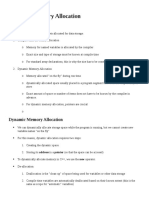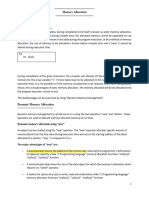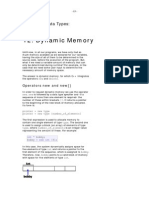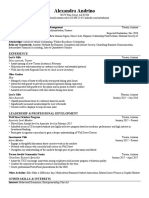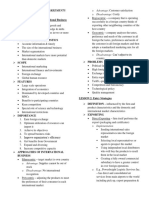0% found this document useful (0 votes)
29 views12 pagesOop Lecture 8
The document discusses dynamic memory allocation in object oriented programming. It explains that programs need storage allocated during execution which is done using keywords like new and delete. Memory is allocated on the heap segment for objects and arrays. Examples are provided to demonstrate allocating single objects and arrays of objects to the heap at runtime.
Uploaded by
khanyz4884Copyright
© © All Rights Reserved
We take content rights seriously. If you suspect this is your content, claim it here.
Available Formats
Download as PDF, TXT or read online on Scribd
0% found this document useful (0 votes)
29 views12 pagesOop Lecture 8
The document discusses dynamic memory allocation in object oriented programming. It explains that programs need storage allocated during execution which is done using keywords like new and delete. Memory is allocated on the heap segment for objects and arrays. Examples are provided to demonstrate allocating single objects and arrays of objects to the heap at runtime.
Uploaded by
khanyz4884Copyright
© © All Rights Reserved
We take content rights seriously. If you suspect this is your content, claim it here.
Available Formats
Download as PDF, TXT or read online on Scribd
/ 12



